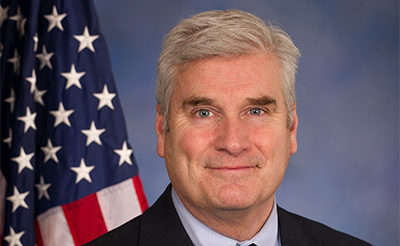Minnesota is poised to be a capital of ‘fintech’ innovation

It’s a great time to start a business in Minnesota. During the recent Twin Cities Startup Week and the Future Finance Forum, Minnesotans came together to share ideas and celebrate our status as the startup capital of the bold north.
Minnesota has already become a leader in several industries — from medical innovation to agriculture — but one area that continues to show new promise is in financial technology, or “fintech.” Financial technologies are enabling convenient access to financial tools and improving the ability for us to plan and invest for our future. In 2015, using your phone to pay at a store amounted to only a little more than $8 billion in annual transactions. This year, we are on pace to reach $210 billion. New technologies are enabling financial empowerment, additional access to credit, and new areas for capital formation. After thousands of years of banking, the industry is facing a revolution that could dramatically advance individual empowerment.
Power to the individual
These new technologies are nonpartisan and help all Americans. Republicans and Democrats alike should take the time to learn about new innovations in our economy, and the ways they can assist those who have previously struggled without access to banking services. This impact is even more pronounced abroad, where 1.7 billion people remain unbanked. Financial innovations provide power to the individual, and a means to a better life.

Minnesota is poised to be a capital of fintech innovation. In addition to our 17 Fortune 500 companies, we have numerous startups and have attracted venture capital totaling almost $500 million. Our finance and insurance sectors already employ approximately 150,000 Minnesotans, a figure that is significantly larger than the national average. In addition, the greater metro area has been ranked the third best city for startups in the nation.
In Washington, I recently became the Ranking Member of the Financial Services Committee’s Financial Technology Taskforce. This Taskforce gives Minnesota a seat at the table as we consider ways to promote innovation and investment in American fintechs.
‘Gig’ economy income verification
There are several bipartisan fintech opportunities I have already advocated for on the taskforce. For example, I introduced the Self-Employed Mortgage Access Act, which would provide additional ways for individuals working in the “gig” economy (for example, Uber and Lyft drivers) to verify their income and be able to afford a house. Our laws have not kept up with the sharing economy, and this bill would ensure those who participate in it have access to a critical part of the American Dream.
In addition to offering legislation, I am also a co-chair of the Congressional Blockchain Caucus, a group of members interested in educating Congress about this emerging technology and advocating for government’s light-touch approach. After taking this leadership role, I introduced the Blockchain Regulatory Certainty Act, legislation designed to free blockchain innovators that do not take control of anyone else’s funds from unnecessary regulation.
Agencies supporting innovation in finance
Government is typically slow when it comes to recognizing and responding to new innovations. However, federal agencies are also taking several steps to support American innovation in finance. The Commodity Futures Trading Commission (CFTC) has launched , which aims to reach out to fintech companies and actively learn about how to develop tailored regulation that supports investment in US companies. The Consumer Financial Protection Bureau (CFPB) recently announced several plans to facilitate innovation and provide regulatory certainty to entrepreneurs. The Office of the Comptroller of the Currency (OCC) has been accepting national bank charters for fintech companies. The Securities and Exchange Commission (SEC) has established a Strategic Hub for Innovation and Financial Technology, known as FinHub, which provides active engagement with the industry to facilitate proper regulation. These are all encouraging steps by our federal regulators as financial technology emerges in almost every aspect of our lives.
And although there will always be concerns regarding consumer protection as it relates to fintech, we must keep in mind that innovation and consumer protection are not mutually exclusive. In fact, new and imaginative innovations can facilitate and enhance consumer protections. These technologies stand to dramatically reduce fees, build credit histories, and enable access to loans for those previously excluded.
Minnesotans can and should help lead the next digital revolution. Change is coming in the ways we use money and the financial opportunities available to us. We have an opportunity to embrace this change and foster these new innovations. I applaud those who organized Twin Cities Startup Week, and hope it will serve as an inspiration for many Minnesotans to learn about these new technologies and make us a major capital for yet another industry.
Rep. Tom Emmer represents Minnesota’s Sixth District in the U.S. House of Representatives.
WANT TO ADD YOUR VOICE?
If you’re interested in joining the discussion, add your voice to the Comment section below — or consider writing a letter or a longer-form Community Voices commentary. (For more information about Community Voices, see our Submission Guidelines.)
